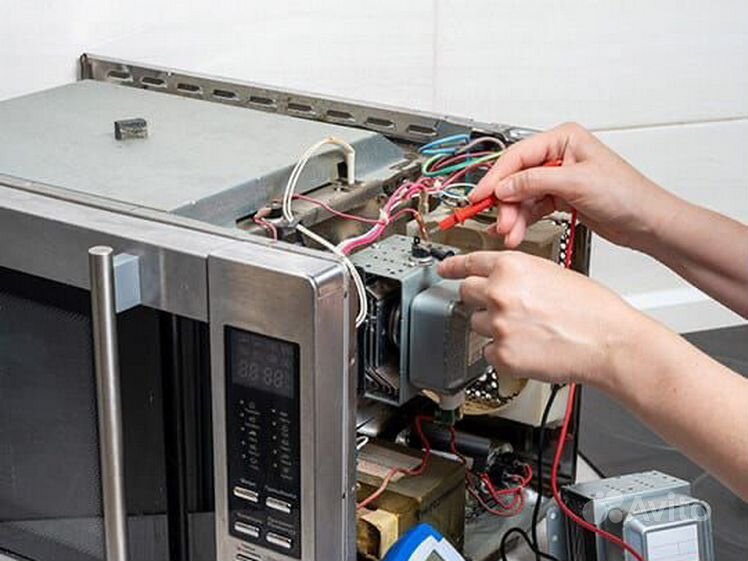Australia Battery Monitoring Systems Market Analysis and Future Growth Projections 2024 - 2032
The Australia Battery Monitoring Systems (BMS) market is experiencing significant growth due to the increasing demand for energy storage solutions and the shift towards renewable energy sources. As industries and households alike look to optimize energy consumption and extend the lifespan of their battery storage systems, BMS technologies are playing a critical role. Battery monitoring systems in Australia are being integrated into various sectors such as electric vehicles, renewable energy storage, and industrial applications, enabling more efficient, safe, and cost-effective energy management. This growing interest in battery storage and management technologies is driving the expansion of the Australia Battery Monitoring Systems market.
Market Overview
The Australia Battery Monitoring Systems market is set to witness substantial growth in the coming years, driven by a variety of factors, including technological advancements, increased focus on energy efficiency, and a surge in electric vehicle adoption. As Australia continues to enhance its commitment to sustainability and clean energy, the need for advanced solutions to manage and monitor energy storage systems becomes increasingly critical. The rise in solar power adoption, coupled with the growing shift towards electric mobility, is amplifying the demand for reliable and precise battery management systems.
Key Drivers of the Australia Battery Monitoring Systems Market
Several factors are propelling the expansion of the Battery Monitoring Systems market in Australia:
-
Increased Adoption of Renewable Energy Sources
Australia has been making considerable investments in renewable energy, especially solar power. As more solar energy systems are being installed across the nation, battery storage has become an essential component to store energy for later use. This shift has created a significant need for efficient monitoring and management of battery performance, which is driving the market for battery monitoring systems. -
Rising Demand for Electric Vehicles (EVs)
The transition to electric vehicles is another major factor fueling the growth of the BMS market. As the number of electric vehicles on the road increases, there is a greater need for reliable and high-performance battery systems. BMS ensures that the batteries in EVs remain in optimal condition, which is crucial for extending their lifespan and improving performance. -
Government Incentives and Policies
The Australian government has introduced various incentives to encourage the adoption of renewable energy technologies and electric vehicles. These policies are not only accelerating the uptake of energy storage systems but also creating a favorable environment for the development and implementation of advanced battery management systems.
Types of Battery Monitoring Systems
Battery Monitoring Systems can be broadly categorized into two main types, each serving distinct needs and industries:
1. Distributed Battery Monitoring Systems
Distributed BMS refers to systems where monitoring units are installed directly at the battery cells, providing real-time data for each individual unit. This type of system is most commonly used in electric vehicles and large-scale energy storage applications. Distributed systems offer high precision and detailed insights into the performance of each battery, which helps in identifying any issues early and optimizing the overall efficiency of the battery pack.
2. Centralized Battery Monitoring Systems
Centralized systems use a central control unit to monitor the performance of multiple batteries. These systems are commonly found in stationary storage applications, such as renewable energy storage or backup power solutions. Centralized BMS are easier to manage and install, especially in large-scale systems, where it is essential to monitor the health and performance of an array of batteries in a simplified manner.
Applications of Battery Monitoring Systems in Australia
The Battery Monitoring Systems market in Australia is not confined to a single sector. The technology finds applications across various industries, helping optimize battery performance and ensuring safe and efficient energy storage.
1. Energy Storage Systems (ESS)
Battery monitoring systems play a crucial role in energy storage solutions, especially for residential, commercial, and industrial solar installations. By monitoring battery voltage, temperature, and charge/discharge cycles, these systems ensure that energy storage remains efficient and the batteries are not overcharged or over-discharged, thus extending their lifespan.
2. Electric Vehicles (EVs)
In the automotive sector, particularly for electric vehicles, the health and longevity of batteries are critical for performance and user satisfaction. Battery monitoring systems are integrated into EVs to track battery life, state of charge (SOC), and temperature, among other metrics. This helps in ensuring that the vehicle performs at its best while preventing issues such as overheating, which can damage the battery and reduce driving range.
3. Telecommunications and Backup Power
Telecommunication networks and data centers rely on uninterrupted power supply (UPS) systems, where batteries play a pivotal role. Battery monitoring systems are employed in these applications to guarantee the efficiency and reliability of backup power systems. With real-time monitoring, operators can predict battery failures and replace them before they impact service delivery.
4. Renewable Energy Projects
As Australia continues to invest in renewable energy sources such as solar and wind, energy storage systems are essential for managing intermittent energy production. BMS technology ensures that the batteries used in these storage systems operate efficiently, storing excess energy generated during peak production hours for later use when energy generation is low.
Competitive Landscape
The Australia Battery Monitoring Systems market is fragmented, with several global and local players competing for market share. Companies are focusing on developing advanced BMS solutions that are scalable, cost-effective, and compatible with a wide range of battery types. Some of the key players in the Australian market include:
-
Schneider Electric
-
ABB Ltd.
-
Siemens AG
-
Tesla, Inc.
-
Nuvation Energy
-
Junkosha, Inc.
These companies are leveraging innovations in software and hardware to offer highly accurate, real-time monitoring capabilities, along with cloud-based analytics to enhance the performance and reliability of energy storage systems.
Future Outlook
The Australia Battery Monitoring Systems market is expected to continue its upward trajectory, driven by technological advancements, government policies, and the ongoing adoption of renewable energy and electric vehicles. The increasing importance of energy efficiency, sustainability, and grid stability will further support the growth of this market. Additionally, the demand for more intelligent, connected, and autonomous battery management systems is likely to spur innovation and competition in the coming years.
As Australia positions itself as a leader in clean energy adoption, battery monitoring systems will remain a pivotal component in achieving the country’s energy goals. With continued investments in infrastructure and research, the market is set to evolve and thrive, benefiting industries and consumers alike.
Conclusion
In conclusion, the Australia Battery Monitoring Systems market is witnessing significant growth, driven by the rising demand for energy storage solutions, the shift towards renewable energy, and the growing adoption of electric vehicles. With advancements in BMS technology and increasing investments in sustainable energy, this market is poised for continued expansion. As the need for more efficient, safe, and reliable battery management systems becomes even more critical, the role of BMS technologies in Australia’s energy future cannot be overstated.
More Trending Reports
Wired Drill Pipe Market Analysis
Battery Monitoring Systems Market Analysis
What's Your Reaction?
 Like
0
Like
0
 Dislike
0
Dislike
0
 Love
0
Love
0
 Funny
0
Funny
0
 Angry
0
Angry
0
 Sad
0
Sad
0
 Wow
0
Wow
0















































